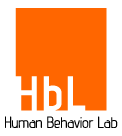A Skill That Will Help You ‘Get Ahead’ at Work
Familiarity with the idea of adaptability, and knowing how to strengthen it, is key to success at work. Human resource experts have been discussing the idea of adaptability for some time now. And given how rapidly changing workflows are today, adaptability is more relevant than ever.
In the workplace, adaptable people have the ability to confidently navigate changing circumstances, which is a valuable asset as many companies are now facing the new reality of remote and hybrid working. But this trait isn’t just something that can make employees more effective. The ability to adapt can improve employee well-being because it means they are better prepared for change. This is even beneficial when playing online blackjack. The quicker the player makes decisions, the higher the chance of winning.
As the field of work is constantly changing, it’s no surprise that adaptability has become a skill that employers are looking for. A Harvard Business School survey in 2020 found that 71% of 1,500 executives from more than 90 countries said adaptability was the most important quality they look for in a leader. And data from a McKinsey & Company study in 2021 showed that people who were adaptable were 24% more likely to get a job.
To thrive in a new workplace today and get noticed by employers, being familiar with the idea of adaptability, and knowing how to reinforce it, can help you get ahead.
What is adaptability?
Adaptability isn’t just the ability to survive change. When they befall you it’s resilience. Experts say that to be truly adaptive, you need to actively prepare for change, even advocate for it, and constantly add new knowledge and skills. That way you can meet new needs as they arise.
Often being adaptive means not reacting to change, but being an active catalyst for it. A good manager, for example, will not make a plan for what to do if his industry is disrupted; rather, he will actively grow his company proactively by planning for change.
On the other hand, a worker with good adaptation skills, such as a sales consultant, may avoid old methods in advance. He or she can experiment with new customer targeting techniques, learn different cold calling methods and evolve to be ready for changes in the industry and profession.
Adaptability not only helps us avoid being overwhelmed, it helps us be creative and seize opportunities amidst chaos. Thus, adaptability allows you to remain calm during times of crisis change. This means you are less likely to make unreasonable decisions.
Anyone currently working in constant change can benefit from honing their adaptation skills, and there are many methods people can employ to do this.
A key step is to focus on breaking out of established habits, patterns and approaches. Experts suggest replacing the different types of thinking we often revert to in moments of change with more interesting alternatives.
You may, for example, think you know the right way to do something because you’ve been doing it a certain way for years-that’s defensive thinking. But by deliberately asking yourself if this is the best way, or even trying a different approach, you may discover something new. A willingness to learn and a willingness to respond to changing circumstances is what allows you to continue to succeed.
On a very simple level, this may mean changing small aspects of your job to incorporate new elements into your daily routine. Volunteering to lead a presentation can be intimidating at first, but it can also open up the next rung of the career ladder.
People who have a growth mindset believe that their abilities can change over time. And those with a fixed mindset believe they are born with intrinsic talents. If something seems too difficult, they believe it’s just not for them.
As jobs and work practices continue to evolve, improving adaptability can provide workers with the tools they need to leap forward. The essence of adaptability is the ability to recognize that if something goes wrong, it’s not fatal. It’s about realizing that with an experimental mindset you can find something better.
We specialize in High-performance Human Behavior training
Working on the humans that grow your business | Human Behavior Expert, I teach corporations & employees how to hack into humans using Behavior & Persuasion. I work with Pharma | Finances| Banking |Insurance| Sales| AI – Language & Behavior Prompt Engineering
